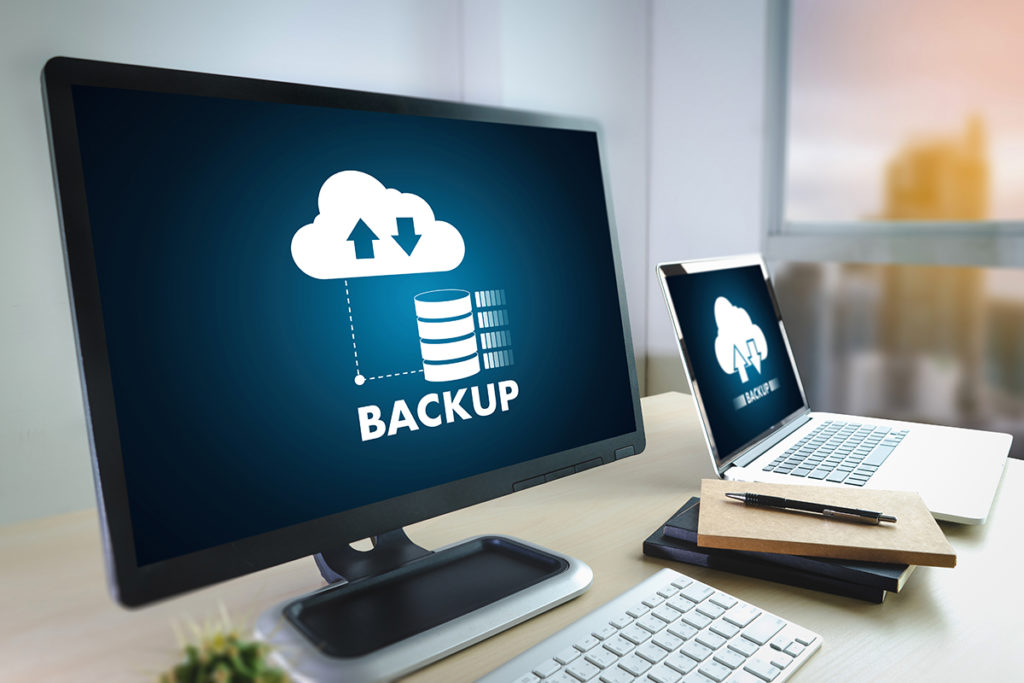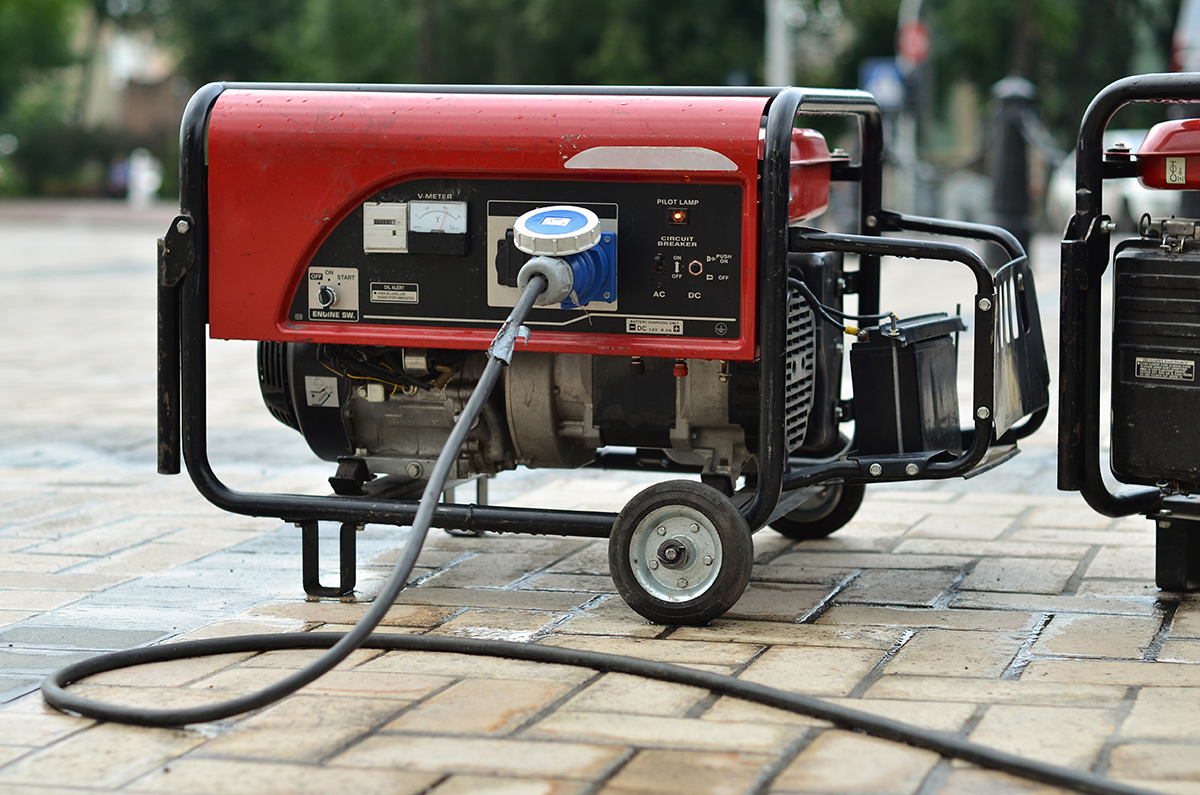By Leader Contributor Jessica Farren, Public Relations Specialist and Staff Writer at ASD
It wasn’t just the smoke from the wildfires that blackened skies in California this past season. In an effort to keep windblown electrical equipment from sparking wildfires, utility companies imposed power outages throughout the month of October that impacted millions of people across the Golden State.
Even those who were not in the path of the fires were impacted by power disruption issues caused by PG&E cutting electricity, in some cases without any warning. The power company has since released several statements that indicate Californians are likely to expect rolling fire-prevention blackouts for another 10 years as it upgrades its electric systems.
“I’ve never experienced anything like this,” said funeral director Mark Mulholland of Valley Memorial Park Cemetery & Funeral Home in Novato, CA. Mulholland stated in a recent interview that responding to the outages was a “huge, huge challenge” for him and his staff.
The article went on to detail all of the ways a power interruption can negatively impact deathcare professionals. From dealing with refrigeration nightmares, to being unable to cremate bodies, to having to make funeral plans with families in the dark, these issues are often not considered until after the lights go out.
For funeral homes outside of California, the threat of a blackout may seem less imminent, but recent statistics are hardly reassuring. Power outages have been on the rise for more than a decade. Data from the U.S. Department of Energy reveals the number of reported electrical failures in the country rose steadily between 2009 and 2017, with the annual average of outages doubling every five years. In fact, the United States endures more outages than any other developed nation.
While severe wind and ice often cause downed electrical lines, the risk of a power disruption is not always conditional on weather events. Just ask the many funeral professionals in New York City who were impacted by the massive blackout that hit Manhattan last July. According to Inside Energy, “An aging infrastructure, combined with a growing population and more frequent extreme weather, are straining the electric grid.”
So, it’s not so much a question of if your firm will be impacted by a power outage in the future, but when. Taking proactive steps in advance can greatly minimize the impact these unpredictable events can have on your funeral home.
Here are five ways funeral professionals can prepare for power outages.
1. Invest in a Backup Generator
For funeral homes in areas that are prone to severe weather or who are impacted by frequent power issues like the ones affecting Californians, it may be time to consider equipping your building with a standby generator.
A prolonged blackout can result in a myriad of issues, especially for firms with a high case volume. Cremations cannot take place. Death certificates cannot be filed. Scheduled funeral services must often be halted. And, without refrigeration on the premises, funeral professionals without generators are often forced to transport bodies to other facilities.
Depending on the circumstances, funeral professionals may be forced to make a rushed purchase in response to the outage. This exactly what happened to Mulholland when his funeral home team had to scramble to find a 7,500-watt generator and 30-amp outlets.
“Every funeral home now needs a generator,” Mulholland stated in the interview. “Nobody ever thought this would be a problem. But this is the new normal.”
There are many things to consider when purchasing an automatic standby generator for a funeral home. Understanding your power needs, fuel type, and voltage requirements are just the start of the research required. Funeral home owners will also need to determine who will install the equipment, where it should be located at the funeral home, and how it will be maintained over time. These questions are much less stressful to research when you’re not dealing with a power outage crisis at the same time.
2. Set Up Your Funeral Home’s Call Forwarding in Advance
Your funeral home’s telephone is the first point of contact for both the families you serve and those that may need to convey vital information during a blackout. Fortunately, you can keep your phone lines protected 24/7 and ensure that families can always speak to someone with call forwarding.
Contact your local phone company to set up your call forwarding preferences in advance. With call forwarding in place, calls will transfer automatically to a secondary number if a power outage prevents you from manually forwarding the line.
Your phone company will be able to explain the different types of call forwarding options available in your area. Most provide a disaster-recovery feature that can be turned on 24/7. Known often as Call Forwarding Not Reachable, this option ensures calls automatically route to a pre-determined number (such as your cellphone or answering service) if phone service is not working due to a power or network outage.
As an added layer of protection, many funeral homes will also enable No Answer Call Forwarding in advance. If the phone is not answered in the funeral home after a predetermined number of rings, the line then forwards your cellphone or answering service. You can customize how many times the phone rings before it forwards to the secondary number.
3. Protect Your Internet Connection
Funeral home owners should take steps in advance to confirm their internet router is powered by a battery backup. Keeping your funeral home’s networking equipment stored on its own UPS Battery is the most secure way to maintain your Wi-Fi connection through a power outage. These devices provide backup power to modems, wireless routers, and VOIP phone systems.
Ensuring your internet connection remains stable during the blackout is also essential to keeping your community up to date on how the power disruption might impact your funeral home. Your website, email list, and social sites allow you to transmit a message to more people than any other form of communication. You can share information about service delays, changes, and cancellations or post assurances to let people know you are still available to serve them in their time of need. If any information is still pending, inform website visitors when they can check back for more details. These online mediums provide an essential link between you and your community that you do not want to lose during an outage.
4. Stay in Contact with Your Team
The lifestyle of a funeral director is hectic enough, but when you throw in a lengthy power outage, it can get a lot more chaotic. Communication shortcuts can help simplify tasks and get a message out to everyone on your team quickly. Whether you need to find out which one of your directors is available to help make a removal or who has a backup power bank they can lend, group text messages can help make a blackout just a little less stressful for you and your staff.
Create a group or multiple groups in your phone’s contacts in advance so that you may send a message out quickly during an outage. Depending on how often new employees join your funeral home, you may want to set a reminder to add new staff members to your group text list. This will ensure that everyone remains on the same page and understands their specific role.
In some instances, cellular service may also be suspended during an outage for a brief period of time due to cell towers lacking backup battery power or issues with cell companies switching equipment. Fortunately, with a secure Wi-Fi connection, you can still communicate via text with your team even without cellular service. There are several mobile apps that provide this functionality, including ASD Mobile.
With ASD Mobile, funeral professionals can utilize the app’s MobileFH™ Texting feature to create an internal chat with anyone on their team. The app’s internal chat feature can also be used for group texting, allowing funeral home teams to communicate about services they are currently handling, tasks that need to be completed, or important alerts about power disruption. The internal chats are stored securely within ASD Mobile and can be accessed at any point in the future.

5. Back Up Your Data Off-Site
Technology has made it simpler than ever to safeguard your funeral home’s records. Most business owners today are already using cloud-based services to back up their files online. According to Small Business Trends, 78 percent of small to medium-sized businesses will practice data backup to the cloud by 2020.
Investing in a management system for your funeral home will enable you to store vital documents digitally so they can be accessed from any location. Cloud-based services, such as Carbonite, provide extra peace of mind by automatically backing up your files safely off-site and providing you with a web-based dashboard to easily access what you need from anywhere. This flexibility will reduce the time it takes for you to become operational again after an outage.
Final Thoughts
Funeral directors understand the crucial need for intuition and foresight. The unpredictable nature of death combined with the short window of time to plan a service requires for you to be ready for any possible curveball. However, there are some scenarios that no business owner is ever fully prepared to encounter. When faced with an extended power outage, the consequences for your funeral home are dependent on your reaction to changing circumstances. Creating a contingency plan with your team now will do a lot to illuminate the best pathway forward after a blackout.
Jessica (Fowler) Farren is the Public Relations Specialist and Staff Writer at ASD – Answering Service for Directors. She has answered the calls of funeral homes nationwide for more than 15 years. Jessica manages ASD’s company blog, social media accounts, and digital marketing. She has been published in numerous funeral trade magazines and has written articles on a variety of subjects, including communication, marketing, business planning, technology, and funeral trends. To contact Jessica, call (800) 868-9950 or email jess@myASD.com.









Great article very helpful